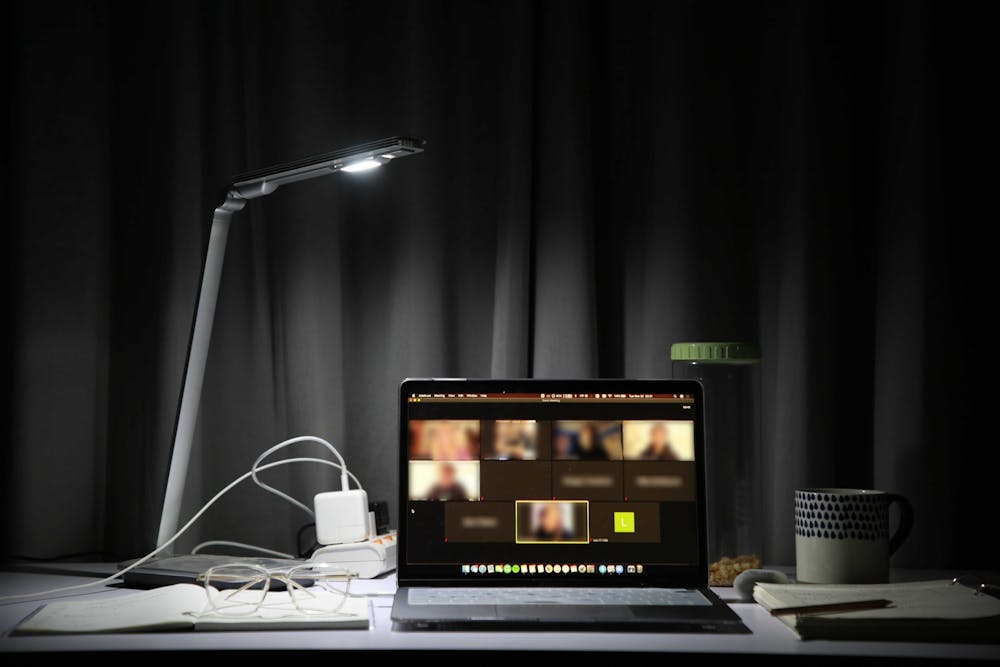As a student living in Korea, I was offered the choice of taking a number of my classes asynchronously during the first week of the semester. For some international students, this was an easy decision to make. Asynchronous learning, after all, entails watching recorded lectures, often at 1.75x speed, without a substantial increase in workload compared to other students. Out of an unexplainable blend of ambition and guilt, however, I reluctantly decided to sabotage my sleep schedule in order to take synchronous classes. I figured that in the worst-case scenario, I could later bail and request offline instruction if things got too tiring.
It is now nearing the end of November. I wake up at around 4 p.m., finish schoolwork until class at 12 a.m., and go to sleep at 6 a.m. As you can imagine, I typically have only one meal and a few snacks per day, and I am not necessarily in top-notch condition when classes start. In spite of all this, I can confidently say that at this point in the semester, I am still taking every class at its scheduled time. And it actually has not been all too bad. With the exception of those with financial or health-related problems, there is in fact a case for international students to opt into synchronous instruction.
College is all about meeting a diverse array of people, from potential life-long friends to inspiring professors. Although Zoom is inherently not conducive to the cultivation of these relationships, it is considerably better than not being present at all. Most classes, whether they be seminars or recitations for problem-solving, end up splitting students into breakout rooms. Even without elaborate introductions or in-person contact, classmates can somewhat easily get to know each other over time by working collaboratively on classwork or engaging in occasional small talk. A number of the people I currently text from time to time outside of class are peers from this type of group work, who seemed to have sociable personalities or once helped me understand something. Naturally, the same applies to professors: the more in-class contact you have with them, the more likely these instructors are to acknowledge your contributions and get to know you on a personal level. Especially for first-year students like myself, freshman year is the ideal time to broaden one’s horizons by talking to more than just high school friends.
Additionally, opting into asynchronous classes leads to a more passive style of learning that fundamentally changes the way people complete classwork. Simply watching a recording means that students pass up the ability to engage in the interactive components of a class, including discussions and problem-solving. Studies indicate that people retain more information when they partake in interactive learning as opposed to well-polished lectures.
However, those who watch recorded lectures will end up purely depending on the output of their classmates without spending the time to personally mull over the topics in question. In other words, with no incentives other than studiousness to mirror the thorough completion of classwork on one’s own, this type of learning may undermine the critical thinking component of education. Questions cannot be asked in real time, which delays responses to unanswered thoughts. Moreover, people may postpone watching the recordings until a few days prior to an assessment, normalizing procrastination. As such, offline instruction results in the habit of always lagging one step behind.
According to the most recent update from the university, on-campus housing will reopen for the spring semester with extensive social distancing and testing measures in place. While many are highly anticipating this partial return to normalcy, others will certainly stay home; the university could even reverse this decision as it did in August. After all, daily COVID-19 cases in Philadelphia are still on the rise and could continue to increase for the foreseeable future. If you plan to stay home for a second semester, you will again be presented with the option to take your classes synchronously or asynchronously. Choosing the former will maximize your college education.
ANDY YOON is a first-year student in the Huntsman Program. His email address is andyy327@wharton.upenn.edu.
SEE MORE FROM ANDY YOON:









